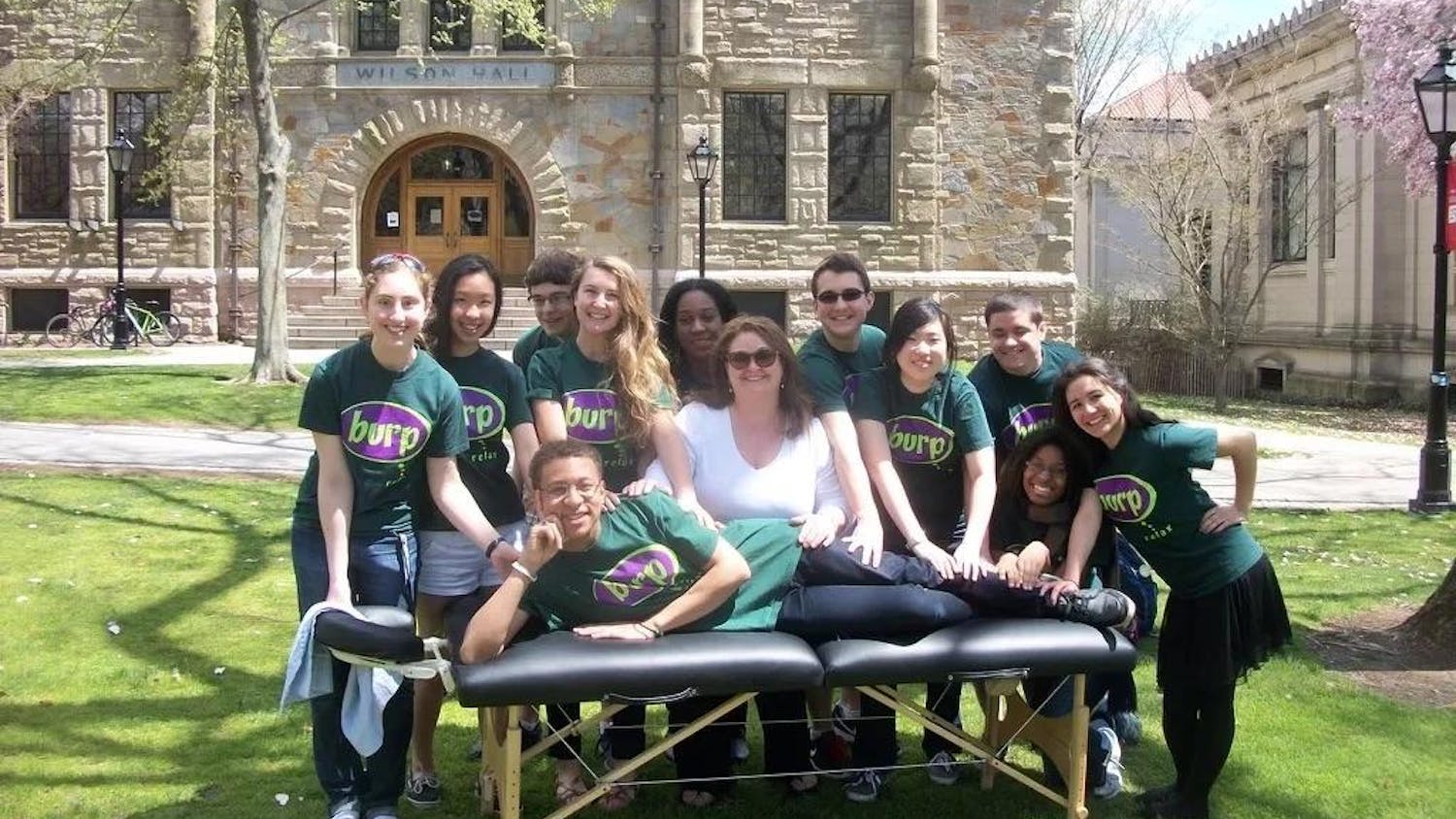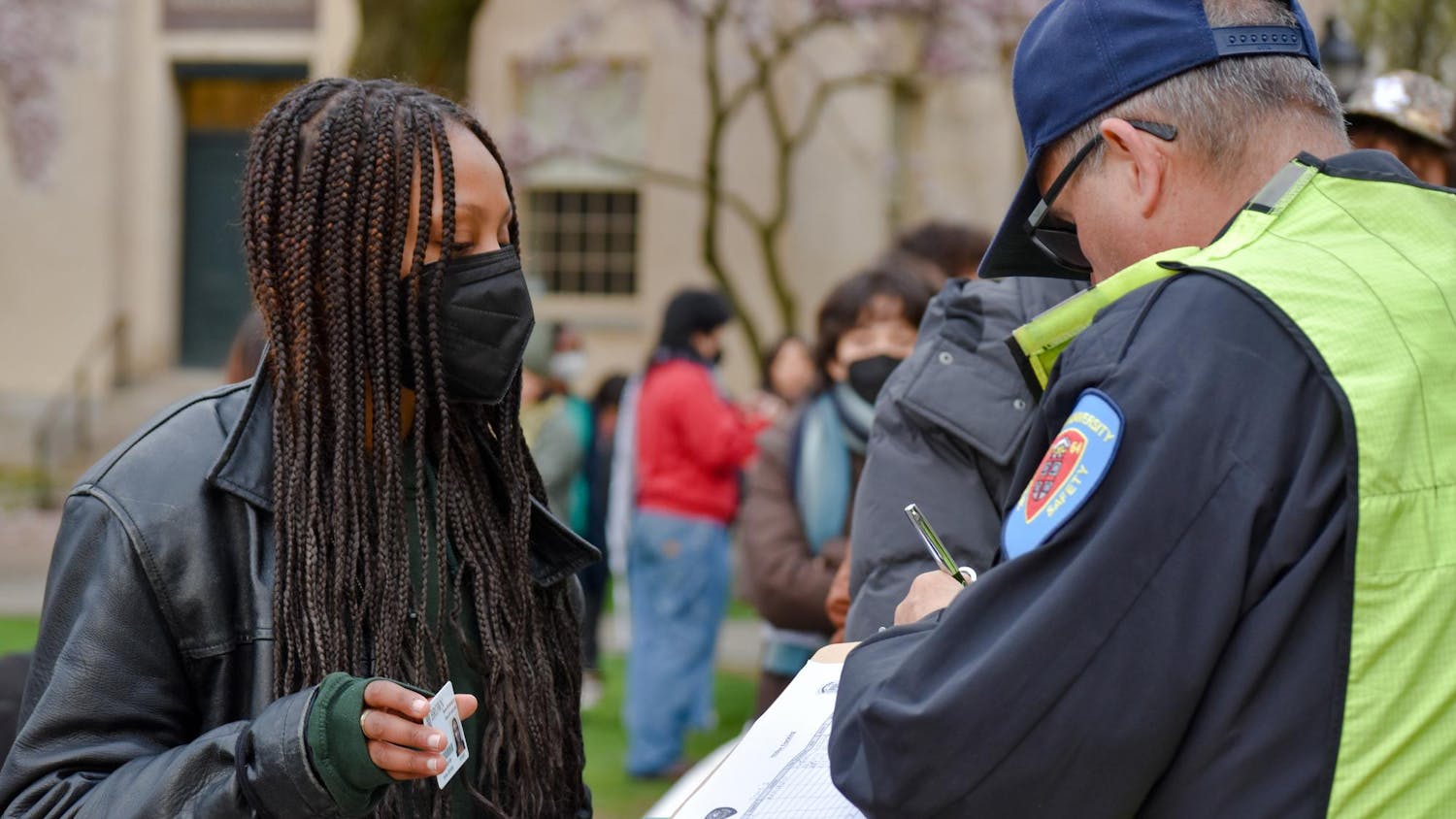When the faculty voted in April to rename Columbus Day on the University calendar to sidestep the historical figure's controversial legacy, local leaders from the mayor to the governor protested the decision, saying it was disrespectful to Providence's Italian-American community.
At a Sunday night panel discussion hosted by St. Stephen's Episcopal Church on George Street, the Brown student who led the anti-Columbus charge and a representative from the Providence branch of the Sons of Italy met to reflect on the name change.
The panel, entitled "Goodbye, Columbus!" and attended by local parishioners and Brown students, was designed to "foster engagement" over the question of Columbus' place in American history, said Father John Alexander, rector of the parish.
Reiko Koyama '11, who petitioned Brown's Faculty Executive Committee during much of the last academic year, squared off against Valentino Lombardi, a Sons of Italy representative.
The Rev. Deacon Michael Tuck of St. Stephen's, who works for the chaplain's office at Brown, opened the discussion by reading an excerpt from a speech given by President Benjamin Harrison in 1892.
"‘Columbus stood in his age as the pioneer of progress and enlightenment,'" Tuck said, quoting the speech. "‘The system of universal education is in our age the most prominent and salutary feature of the spirit of enlightenment, and it is peculiarly appropriate that the schools be made by the people the center of the day's demonstration.'"
After Tuck's reading, Koyama opened the discussion by explaining why she supported the renaming of the holiday to the neutral "Fall Weekend," and why she had worked for the change.
"Brown prides itself on being socially conscious and valuing diversity and respect," she said. "It seemed that the celebration was a little inconsistent with these core values."
She also called the idea of Columbus Day as a celebration of the "discovery" of America "inaccurate."
"It's wrong to call it a discovery when thousands of people were already living here," she said. "Also, Columbus never came to this country. He landed in the West Indies and stayed in the West Indies. We deserve accuracy in the framing of our history."
Koyama said conceptions of Columbus are complicated by a generational divide. "There is a gap between what was taught in history classes decades ago and what is taught today," she said. "Our textbooks have not been telling the whole story."
To illustrate her point, Koyama listed examples of alleged mistreatment of Native Americans at the hands of Columbus and his men — including rape, murder and the use of physical disfigurement to produce subordination. These actions do not fit the depiction of Columbus as an American hero — all too commonly used in elementary schools, she said.
Lombardi, in rebuttal, said the allegations against Columbus which Koyama brought up were "questionable" in terms of historical accuracy.
"This is judging a quintessential Renaissance man in terms of contemporary values," he said. Lombardi said the Sons of Italy, a national organization of Italian-Americans, has developed a "positive-image program" to inform the nation about Italian-American culture.
This program included a study of Columbus, conducted in 2002 "in response to growing concerns about the celebration of Columbus Day," he said.
"Many of the things that were said about him are unfair," he said. "Columbus was a friend to the Native Americans that he ran into."
"From a historical viewpoint, Columbus proved that it is possible to cross the Atlantic Ocean and return. He was the first to open relations between Europe and the Western Hemisphere and ... laid the foundation for future voyages," Lombardi said.
"With regard to Columbus' ability as a politician, evidently it's flawed in nature," Lombardi said. "But he wasn't trained as a politician or as a governor — he was trained as a navigator. His intention was to find a new route to the Indies, and he happened upon a new world."
Lombardi also stressed recognizing the significance of Italian-American achievements, particularly in light of the prejudices the community has faced throughout history. "Columbus Day is the one day on which the nation recognizes the heritage of millions of Italian-Americans," he said.
Koyama said she did not intend any disrespect to Italian-Americans, and noted that she is involved in organizing a "roots week" at Brown that would celebrate cultural diversity and open up controversial issues, like the renaming of Columbus Day, to campuswide discussion.
The panel discussion was then opened up to questions from the audience. Asked whether Columbus' treatment of the Native Americans entirely discredited his accomplishments, Koyama said, "Where do we draw the line? If people can't draw the line with Christopher Columbus and the things that he did, that just shows disrespect to the millions of Native Americans who have died since his landing."
"If you can discount the atrocities he committed because he discovered America, I have to wonder what that says about Americans," she added.
Another audience member questioned whether the renaming of Columbus Day would actually limit discourse on American history, suggesting that the holiday could keep its name but incorporate an emphasis on "new learning" and a greater drive toward historical accuracy.
"That could be a good compromise in a situation like this," Lombardi said. "I think we have to work for a full understanding in order to accept the positive aspects of someone, recognizing fully that there may have been some negative aspects as well."
Koyama also stressed the importance of greater understanding and learning. Columbus represents "a very important time in history that we don't want to cover up, but instead bring light to," she said.
Alexander, the rector, ended the night by emphasizing the importance of continuing discussion and debate. "I hope that this dialogue doesn't end here tonight," he said. "I think that involving not only the voices of the academic community on campus, but also from the larger community is a way to expand that dialogue."




